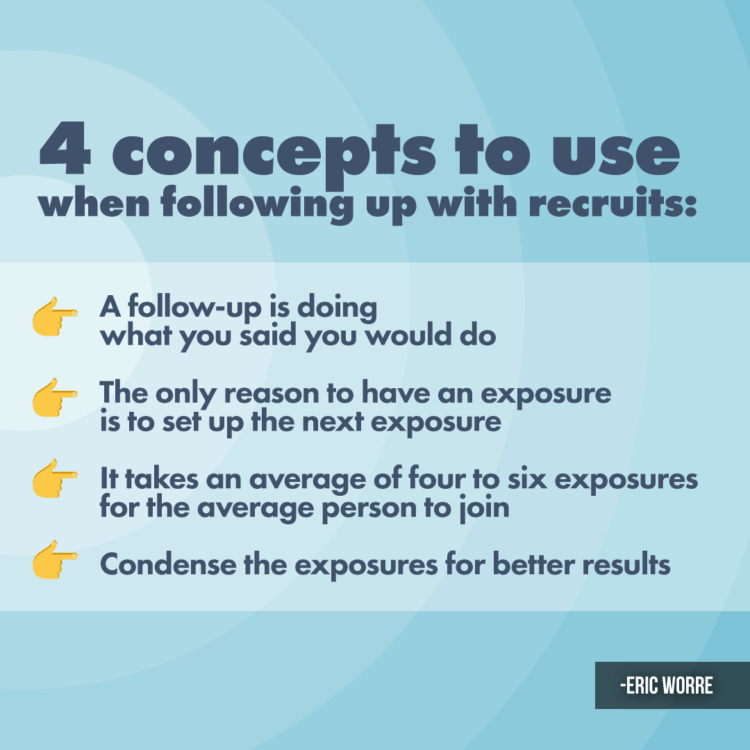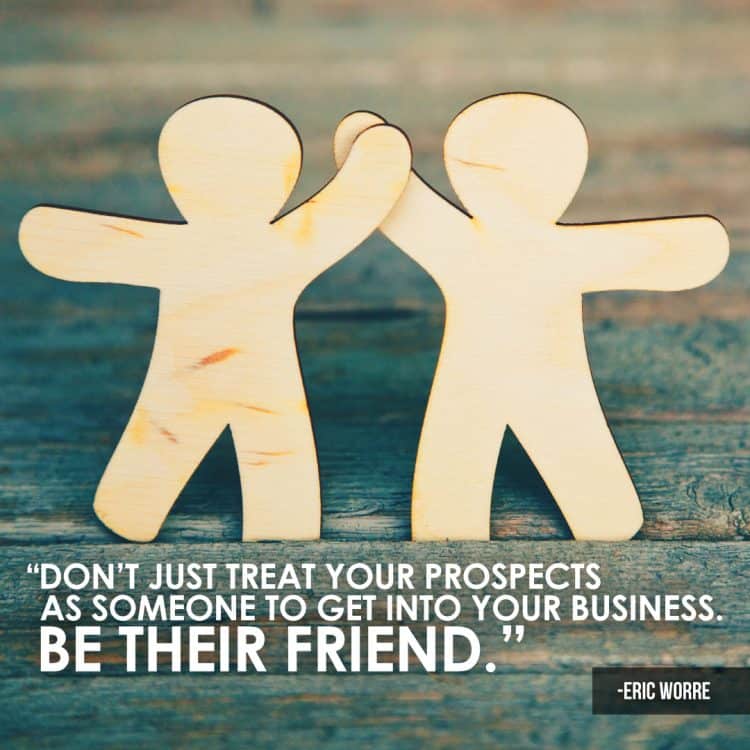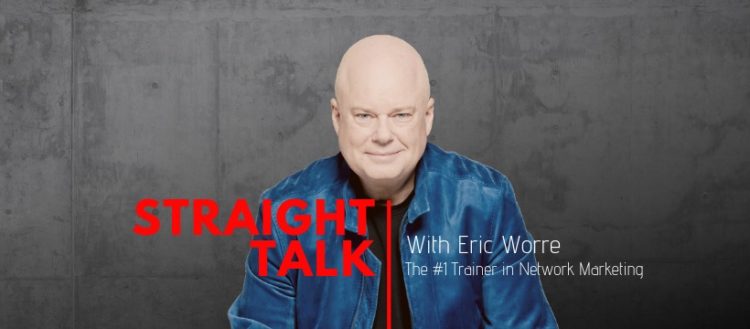So, we’re in the 21st century and businesses are still not marketing on Facebook!
Why is that?
For starters, it’s still the world’s largest social network with a whopping 2 billion users. That in itself is mindblowing.
Let’s look at some numbers.
1.2 billion people use Facebook every day.
To put that in perspective. That’s 80 million more people than the 103 million viewers that tuned into the 2018 Super Bowl.
The good news is you don’t need a budget of Super Bowl proportions to get into the game. Sharing valuable content that connects with your ideal avatar is an important play.
Let’s talk about what businesses are doing wrong on Facebook
- Pick a “profitable” niche
- Do keyword research to find “hidden” gems. Better hope they’re “buyer” phrases.
- With money keywords in hand, grab a domain (exact match, of course, regardless of how silly it looks)
- Set up hosting, install WordPress, select theme (that never really looks the way you want it to and does a bad job of presenting your offers, especially if you’re also looking to create landing Pages)
- Create content, create content, create content
- Hop on the SEO merry-go-round (exact match domain, “thin” sniper site or authority site, backlink spamming, bookmarking, comment spam)
- Cross your fingers that Google doesn’t wake up in a bad mood and wipe your site off the face of the internet with an algorithmic sneeze
- Pray for “buyer traffic” – people who are looking to make a purchase…where are they, by the way?
- Educate and Presell your traffic with your content
- Hope the sales come in
Now, let’s look at the better way of marketing on Facebook
- Pick a targeted audience you’d like to communicate with
- Figure out what they’re interested in
- Determine what that audience might buy
- Borrow content
- Target that audience via a small daily ad spend
- Give them the valuable content they’re interested in
- Promote relevant stuff to them or get paid to entertain them (you can also sell them stuff after you’ve earned their trust)
The new way of marketing has very little to do with the search engines. It doesn’t require a website, or domain, or hosting.
You don’t have to build a list (if you don’t want to). You’re not shoving products down people’s throats.
And the whole thing is built on leveraging people’s passions and interests, with a powerful viral boost.
If this sounds good to you, then keep reading. 
Here is the 30,000-foot overview
- Brainstorm potential page niches
- Research and validate your niches…then choose one
- Collect content
- Create and launch your page
- Schedule your posts
- Build your audience
- Monetize your page
Let’s start with the basics here first.
First off, why are people on Facebook, anyways?
For obvious reasons, people are on Facebook to connect and keep up with their family, friends, and colleagues. As well as share their experiences with the same people.
People are not on Facebook to buy things!
They do this through status updates, which tell our network what we’re doing (“Just finished the most delicious piece of cheesecake ever!”), what we’re thinking (“The New England Patriots are cheaters”), and where we are (“Bob checked in at Los Angeles Dodgers Stadium.”).
Pictures are a huge part of the Facebook experience, especially with smartphones and apps that make posting images and videos into Facebook an instantaneous event.
And the all-mighty “like” button is the easy way for Facebook users to express their approval of just about anything!
The “Like” Button
Practically anything on Facebook can be liked. Posts, comments within a post, Pages…and when something gets liked, there’s a chance that action will show up in the feed of that person’s network. (The same thing goes for content “shares.”)
This makes the Facebook like button the world’s greatest referral engine!
The Page “Like”
When a Page is liked, permission is given for the “liker” (which we’ll call a “fan”), to receive updates from that Page.
So each new like is a person who will receive Page updates.
Pairing the Like Button
When you give people the opportunity to like something they already like or love in real life, good things happen!
When you leverage the “like” button as a badge they can proudly display to their networks, great things happen!
The like button can serve to “self-identify” with something they really like or love.
Facebook is Different
Back in the wild, wild, west days, traditional internet marketing looked like this:
Product First → Find Buying Audience → Sell Them Stuff
“I have this thing I want to sell. Let’s drive traffic to the offer!” Facebook Marketing looks more like this:
Audience First → Provide Valuable Content → Show Them Stuff
“I want to be able to speak to women ages 30-50.
What are women of that age interested in? What do they buy?”
Audience First
Since we are going to take an “audience first” perspective (rather than the old “product first” route), it’s critical we discuss some essential ways that human beings operate on the planet. Consider this a quick mix of psychology, sociology, and a little intuitional voodoo all poured into a delicious cocktail.
How are people naturally organized?
Humans are naturally organized in these ways:
- By gender
- By age
- By nationality
- By race
Pretty straight forward, wouldn’t you agree?
How do people organize themselves?
But here’s where it starts to get interesting. Because the way we see people, as someone in a niche, or a number on a demographic chart, or some potential buyer, isn’t the way people organize themselves at all.
People can organize themselves as being a part of something. People look for connections (it is a person’s inability to achieve these connections that creates socio- and psychopaths), as connections help bring not only meaning but the perspective to the human experience.
Here are just a few of the many ways people organize themselves:
- Family – we are not just individuals; we’re brothers, sisters, sons, daughters, husbands, wives, mothers, fathers, cousins, uncles, aunts, etc. Our familial relations are the ones we can’t pick; they’re the most complicated, the ones that bring us the greatest joy and heartache.
- Relationships – these are the other non-familial people in our lives. These could be our best friends, our neighbors, our colleagues at work, the people we see at church or play sports with. They are often the people we most seek approval from, compete with, and spend recreational time with. We typically have more of these people in our lives than family members, therefore our relationships are essential to our daily being.
- Religion – People definitely organize and identify themselves religiously (even people who are not religious identify themselves in that matter).
- Education and schools attended – For many, their education is a point of pride. Here in the States, university sports (especially football) is a huge pastime and way that alumni (and even those who didn’t attend the university) rally together.
- Sports – On that note, being a fan of a sports team is a way people organize themselves. Ever met a Boston Red Sox fan? Or a Manchester United fan? Or a Texas Aggie? It can border on obsession for many, their love of the team.
- Politics – Since the government affects so many aspects of our lives, it stands to reason that people will organize themselves politically. And from this comes the policies of the government, which often brings into play ethical and moral beliefs, which are an additional way that people organize themselves (pro-life, pro-choice, etc.).
What interests people?
Something I learned from Dale Carnegie’s book, “How to Win Friends and Influence People, “You can make more friends in two months by becoming interested in other people than you can in two years by trying to get other people interested in you”.
Now that you understand various ways people are organized, let’s look at what interests them. This is meaningful to us because Facebook, for all of its features and user experience, is, at its core, a database. A database that is being fed massive amounts of information by its over 1 billion users. Every click, like, share, comment…everything that a user does on Facebook is being tracked and cataloged, and Facebook makes a lot of that information available to us marketers.
So what are people interested in?
- Hobbies & pastimes – these are the obvious ways people spend their leisure time
- Entertainment – these are the ways people are entertained. This includes activities such as sports, movies, TV, internet, reading, theater, etc.
- Humor – most people enjoy laughing
- Themselves – no surprise that people are interested in themselves. The whole self- help industry is built on this knowledge.
- Causes – many people are passionate about causes, ideas, and charities they believe are important.
- Health – more and more, healthy living and lifestyles are significant to people. This would include everything from fitness and exercise to diet, nutrition, and preventative medicine.
- Money – you betcha, people are interested in money…whether they have plenty of it, not enough, or barely any at all.
- Pets – considered by some to be more significant than human family, pets and animals are a huge part of many people’s lives.
Here are some additional resources to get you thinking about people as an audience, the ways the organize and identify themselves, and some of the things that interest them most:
You might be asking yourself why we spent some time talking about human behavior and sociologic organization.
I find it necessary in order to speak to the right avatar. Finding their pain points and being able to solve their problems.
Consider the Pareto principle. This is 80% psychology and 20% marketing.
Now that I got that stuff out of the way, let’s get into the nitty-gritty stuff!
Brainstorming Your Niche
To get started, you’ll need to have a focused niche for your Page. The good news for us is that that topic can be just about anything conceivable. (You’ll research and validate your topics in Step 2, so rest assured I’m not going to let you pick something that’s so obscure no one will care about it.)
For success, your Page topic needs both of these essential ingredients:
Passion + Socially Acceptable Notions
What are people passionate about?
People’s passions are varied. Look at your own life and think of the things that truly hold your interest. What’s great is that those concepts we covered in the introduction, are exactly the things people are passionate about:
- Family
- Pets
- Hobbies & Pastimes
- Entertainment
- Health
- Money
- Politics
- Lifestyles
- Sports
The list of interests and niches are virtually endless.
But we need our topic to also be socially acceptable
You’ll be asking people to “like” your Page, and when they click that button their entire Facebook network could be notified. Therefore, socially acceptable topics will garner likes and fans quicker, because your target audience won’t have to think too hard about whether liking your Page will get them scorned or in hot water with their network.
Here are some examples:
“Hot Chicks” – passion but not socially acceptable. Let’s say you want to create a Page showcasing pictures of beautiful women. You might be in the dating niche, and this sort of Page would be used as a lead magnet for single men. Sounds good so far, but since the topic is not really socially acceptable, there will be a limited number of people willing to announce to their social circle, “I like hot chicks!” So even though your target audience may have a passion for the subject of researching pictures of hotties, the topic as a whole is not one I would recommend.
“Classic Cars” – passion + socially acceptable. This example meets our criteria perfectly. Car enthusiasts seem to love looking at pictures of classic cars just like others like looking at girls in bikinis. So to the right target audience, liking a classic car Page is an easy decision, because they’re passionate about the topic and it’s perfectly acceptable to let their network know about it.
“Green Coffee Diet” – socially acceptable but no passion. As with any fad diet, the passion level is minimal. It’s socially acceptable to like a diet Page, but where’s the passion or hook to keep that person coming back to the Page? Also, consider that some people may be embarrassed to publicly like or endorse a diet.
“Farm Dogs” – passion + socially acceptable. Pictures of dogs on a farm? Who wouldn’t love that? Completely acceptable and perfect for dog lovers.
Other notables
When making you’re shortlisted of Page topics, keep these ideas in mind:
- Avoid aligning with a brand. It’s a good idea to avoid connecting with any particular brand or celebrity name.
- Make it an easy decision. Imagine your target audience seeing your Page. Essentially you’ll be asking them, “Do you like XYZ [topic]?” You want their answer to be, “I sure do…and I’m proud to let my entire social network know it!” We’ll make this easy by properly targeting the right audiences, but also by having a Page topic that is
A no-brainer “YES” for them to align themselves with
Who are you? What are your passions?
I encourage you to really examine the things in your own life that you’re passionate about.
- Family: What’s your family status? Married? Have kids, or grandkids? Divorced? Remember that people strongly identify themselves within a family structure, and allowing them the opportunity to connect openly (within Facebook) to that identity can be very powerful.
- Pets: Are you a pet owner, or have you owned pets in the past? Aside from our immediate family, pets are likely our most important relationships. You could go abroad, such as “fish,” or specific “koi.”
- Hobbies & Pastimes: Aside from trying to make money through the internet, what do you like to do in your leisure time? (And if you tell me, “nothing,” then you seriously need to rearrange your priorities!) In most marketing, I would tell you it doesn’t really matter if you happen to be interested in a niche you want to sell products in; and it’s not really critical here either. But for now, let’s keep your options open and consider your own hobbies and recreations.
- Entertainment: Along the lines of hobbies and pastimes, what do you do for entertainment? Like action movies, or reading, or breakdancing, video games, or satirical comedians? Entertainment topics can be quite effective on Facebook because, let’s face it, people enjoy being entertained!
- Causes, Health, Money, Politics, Lifestyles: For the sake of moving on, I’m not going to keep asking you personal questions about each of these broad topics.
Jumping off points
As you’re thinking about topics, use the following statements as a fill-in-the-blank brainstorming exercise.
For “audience,” think of a way people identify themselves: mother, daughter, sister, grandmother, for example. And the “activity” would be a topic you’re considering. (You can also replace “activity” with any passion; it doesn’t have to be physical activity, such as in this example.)
- (audience) who love ________ (activity). Example: “Retirees who love surfing.”
- (audience) who love to ________ (activity). Example: “Granddads who love to surf.”
- I love ________. “I love surfing.”
- I love to ________(activity). “I love to go surfing.”
- I’d rather be ________(activity). “I’d rather be surfing.”
- I’m a proud ________. “I’m a proud surfer.”
- I wish I were a ________. “I wish I were a professional surfer.”
My final thoughts
When you’re thinking of an audience to go after, look at your own life and see what drives, motivates, and stirs passion in you. Chances are, there are millions of people who share that exact same passion!
To see consistent results, identify where in your sales funnel you can leverage Facebook ads. Answer these four questions to help define your strategy:
- What’s your objective for Facebook advertising? Generate leads? Make more sales?
- Do you have existing or consistent website traffic?
- Do you have an email list? If so, is it active and how many people are on your list?
- Can you create unique content about your business/industry?
Before you create your Facebook campaigns, you need a plan of action. If you don’t have one, you’ll be flying blind with no idea of where you want to go with your business.
It’s your turn!
Have you used some of these tactics in your marketing? What tips can you offer? I would love to hear your feedback in the comments section below!
Nate Leung
 Ready To Live The Life Of Your Dreams? You need to check this out before it’s too late…
Ready To Live The Life Of Your Dreams? You need to check this out before it’s too late…

 #1 Do What You Said You Would
#1 Do What You Said You Would Just keep holding exposure after exposure. Keep talking with them about your product and opportunity. Talk about why you decided to join. Tell stories of lives that have been changed. Answer their questions about compensation plans, the company, the product, and anything else. Address their objections and concerns. But most importantly, foster the relationship with them.
Just keep holding exposure after exposure. Keep talking with them about your product and opportunity. Talk about why you decided to join. Tell stories of lives that have been changed. Answer their questions about compensation plans, the company, the product, and anything else. Address their objections and concerns. But most importantly, foster the relationship with them.







